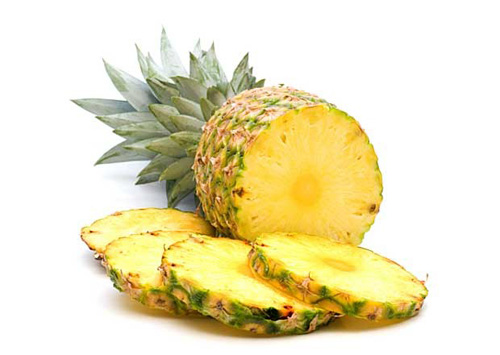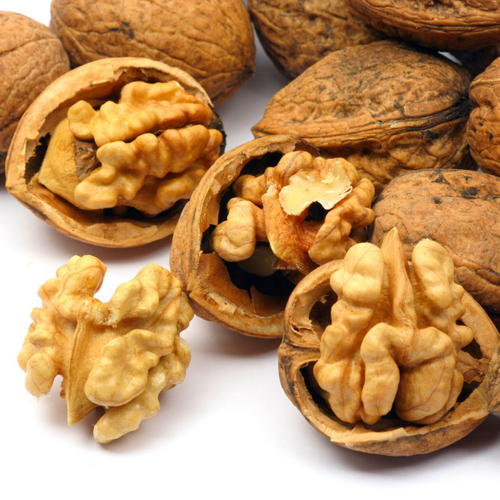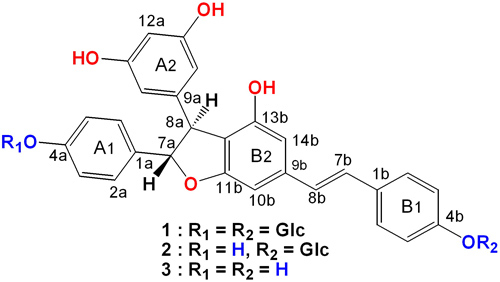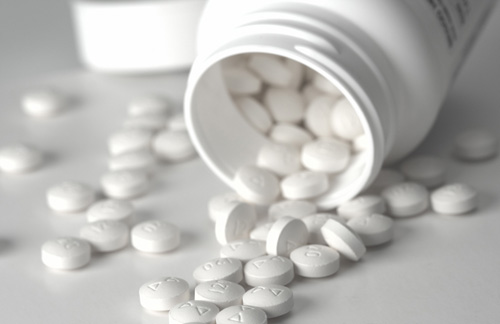The pineapple is a member of the bromeliad family. It is extremely rare that bromeliads produce edible fruit. The pineapple is the only available edible bromeliad today. It is a multiple fruit. One pineapple is actually made up of dozens of individual flowerets that grow together to form the entire fruit. Each scale on a pineapple is evidence of a separate flower. Pineapples stop ripening the minute they are picked. No special way of storing them will help ripen them further. Color is relatively unimportant in determining ripeness. Choose your pineapple by smell. If it smells fresh, tropical and sweet, it will be a good fruit. The more scales on the pineapple, the sweeter and juicier the taste. After you cut off the top, you can plant it. It should grow much like a sweet potato will. This delicious fruit is not only sweet and tropical, it also offers many benefits to our health.
Pineapple is a remarkable fruit. We find it enjoyable because of its lush, sweet and exotic flavor, but it may be one of the most healthful foods available today. If we take a more detailed look at it, we will find that pineapple is valuable for easing indigestion, arthritis or sinusitis. The juice has an anthelmintic effect; it helps get rid of intestinal worms. Let’s look at how pineapple affects other conditions.
Pineapple is high in manganese, a mineral that is critical to development of strong bones and connective tissue. A cup of fresh pineapple will give you nearly 75% of the recommended daily amount. It is particularly helpful to older adults, whose bones tend to become brittle with age.
Bromelain, a proteolytic enzyme, is the key to pineapple’s value. Proteolytic means “breaks down protein”, which is why pineapple is known to be a digestive aid. It helps the body digest proteins more efficiently.
Bromelain is also considered an effective anti-inflammatory. Regular ingestion of at least one half cup of fresh pineapple daily is purported to relieve painful joints common to osteoarthritis. It produces mild pain relief. In Germany, bromelain is approved as a post-injury medication because it is thought to reduce inflammation and swelling.
Orange juice is a popular liquid for those suffering from a cold because it is high in Vitamin C. Fresh pineapple is not only high in this vitamin, but because of the bromelain, it has the ability to reduce mucus in the throat. If you have a cold with a productive cough, add pineapple to your diet. It is commonly used in Europe as a post-operative measure to cut mucus after certain sinus and throat operations. Those individuals who eat fresh pineapple daily report fewer sinus problems related to allergies. In and of itself, pineapple has a very low risk for allergies.
Pineapple is also known to discourage blood clot development. This makes it a valuable dietary addition for frequent fliers and others who may be at risk for blood clots.
An old folk remedy for morning sickness is fresh pineapple juice. It really works! Fresh juice and some nuts first thing in the morning often makes a difference. It’s also good for a healthier mouth. The fresh juice discourages plaque growth.




